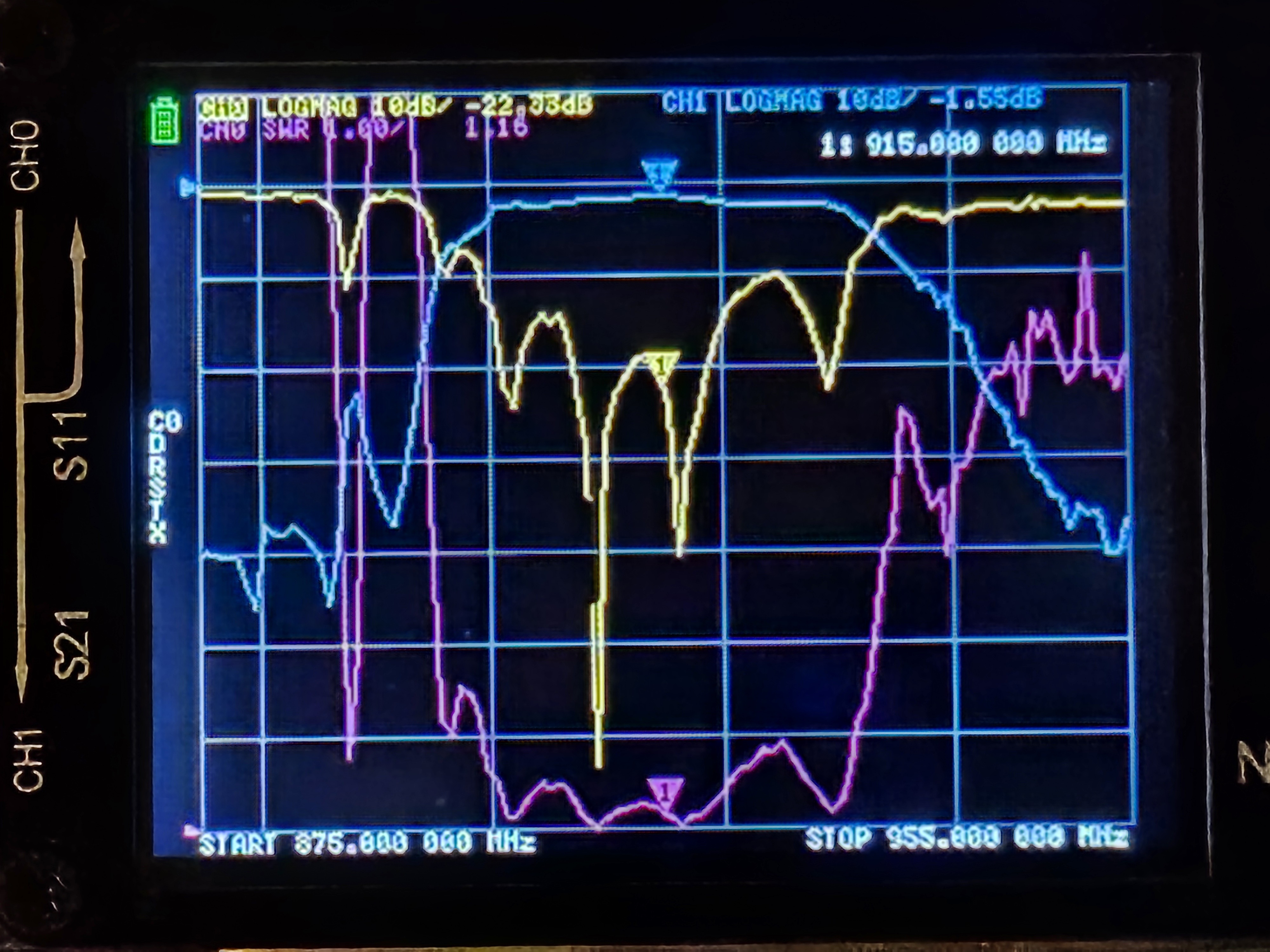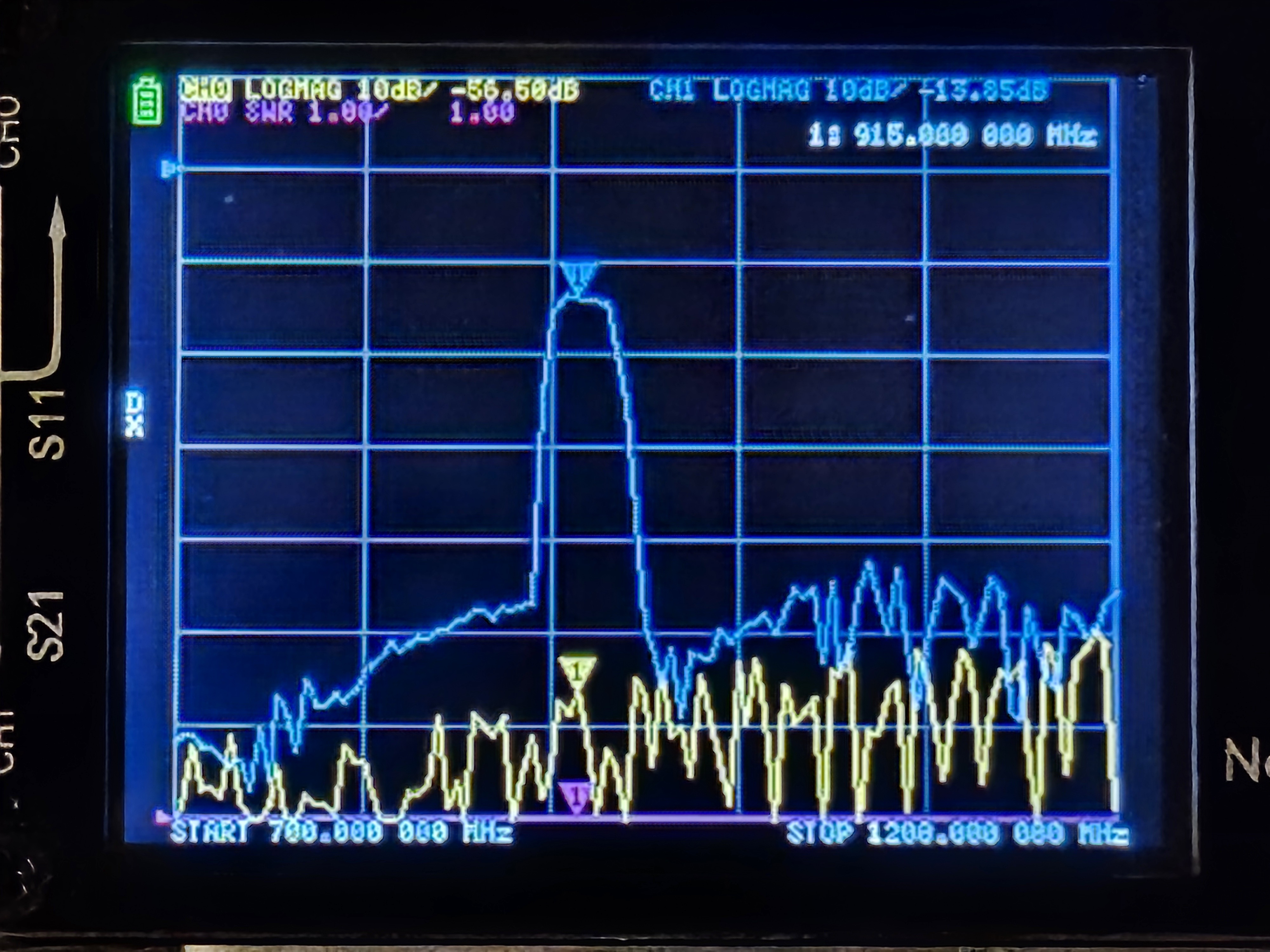Just putting this here in case it’s useful to someone else.
I’m still working on setting up my local nodes and meshing to my buddies houses. Part of my testing involved going to the top of the tallest hill in my town, (1300 feet above ground level, the rest of the ground is relatively flat around here).
The problem was that I couldn’t connect to my home node, around 2.5 miles away, good line of sight. Testing showed that my home node received all my messages, but the return confirmations never made it back.
The problem? The tallest hill in town is also home to two fully loaded cell towers, blasting away, presumably deafening my node, overloading the front end with strong out of band signals. 900mhz GSM perhaps?
At any rate, I looked into band pass filters. I’m a ham and I’ve dealt with poorly filtered front ends by the likes of baofeng, so I know filtering can do a lot, and I wasn’t sure how much a standard node came with.
The answer? Some, not much. Enough for most use cases. Oddly, most information I found on the subject, specific to Lora, advocated against using filters, saying they are usually unnecessary, etc etc.
While that’s probably true most of the time, it’s definitely not true all of the time. I’d be interested to see some a/b comparisons of 20-40 foot high nodes in urban environments, both with and without filters.
From experience I know that a baofeng 144mhz radio (known to have poor filtering) with a 1/4 wave vertical antenna up 40 feet, was mostly deaf to any distant signals, and actually performed better in some instances by just using the stock antenna and standing on the ground. Likewise when using the 40 foot tall antenna and adding a filter, the reception was massively improved.
Add to that experience my most recent test. I added a 915mhz band pass filter to my node and brought it on top of the hill, next to the cell towers, and was able to make full duplex communication with my home node.
I’ll be doing more testing, some a/b testing with the filter on my home node to see if it improves my range tests.
Filters probably aren’t for everyone. And they aren’t free performance gains, you can’t forget insertion loss. But don’t be afraid to buy one and try it if you think you might be having desense issues.
If it works, it works!
Did you roll your own BPF, or purchase it? If the latter which one did you get?
I ended up buying one, though I’m not opposed to building my own. At these frequencies though I imagine it starts to get a little fiddly.
I bought this one.
I tested it on my nanovna but I don’t remember the specifics, I’ll have to put it on again when I get home. If I remember correctly the bandwidth was about right, roughly 30mhz wide to cover the whole ISM band.
The insertion loss might’ve been .5 or 1.5db, the latter of which seems high. I’ll check and report back. I was pretty excited to get it on a node so I didn’t take notes.
Edit: Here’s the sweep of the filter. I did take care to calibrate it first. If I’m reading this correctly, it’s pretty much what I remember. 30mhz bandwidth, 1.5db insertion loss, decent 40-50+ ish db attenuation in the stop bands.

The numbers got weird when I widened the sweep, which doesn’t inspire confidence in this tool or my ability to use it, but you can still see the pass and stop bands clearly, so… 🤷♂️

Thanks for sharing! It sounds like you’re getting good results with the filter regardless, but I’d be interested to see the numbers whenever you have a chance to measure again. I’ve been wanting to try something like this myself, but there are so many bad reviews for different BPFs out there, it’s hard to know which vendors to trust.
Your welcome! I actually updated my comment already, probably while you were typing yours 👍

